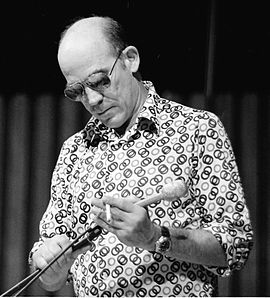This post was submitted by Dan Toller, of the excellent The Electric Typewriter archive. Thanks, Dan!
I saw Fear and Loathing in Las Vegas when I was teenager. It pretty much put me off reading anything by Hunter S. Thompson for about a decade. It’s not a bad film, but it was heavy on drug abuse and light on, well, everything else.
Then Fear and Loathing was voted one of the 25 Best Magazine Articles Ever by a bunch of journalists, along with one of Thompson’s other essays, The Kentucky Derby Is Decadent and Depraved. The vote was organised by former Wired editor Kevin Kelly, and the list of nominations is one of the best collections of classic journalism on the internet.
Reading The Kentucky Derby, I realised that Thompson had plenty of interesting things to say about the idiosyncrasies of American culture, that he really knew how to put a sentence together, and that he was far more than just a crazed maverick.
His strange blend of revolutionary politics is most identifiable in his earlier work. His 1965 Nation article The Motorcycle Gangs is great, a comparatively straightforward indictment of the American moral majority; this was the article that became The Hell’s Angels, the book that launched his career). The same disdain for the hypocrisy of the ‘square’ world runs through his 1968 Times Magazine article about the decline of hippy culture. This essay summed up the sad trajectory of the later ‘cultural revolution’ just as most people were becoming aware of its existence. And his 1970 article about the death of journalist Rubén Salazar is equally prescient, still offering remarkable insights about racial politics in California over 40 years after it was published.
What surprised me when I finally read Fear and Loathing was the bleak picture it paints of American culture, just as the country reached the height of its power. Of course Thompson’s drug-fuelled ego trip is also at the centre of the story, but he manages to convincingly present it is as a reasonable reaction to the madness of the world he finds himself in. The same sort of tension plays out beautifully in Freak Power in the Rockies, the story of his defeated attempt to take power, with a ramshackle band of drop outs and misfits, from Aspen’s political establishment.
This was Thompson at the peak of his powers. Later, he got a little too comfortable in the gonzo persona he’d created. Thompson’s once-refreshing stance had become a shtick. Although they are still very entertaining reads, wacked-out adventures like The Curse of Lono and Doomed Love at the Taco Stand don’t go as deep as his earlier work.
That said, one of my very favourite Thompson essays, Song of the Sausage Creature, has no deeper meaning at all; it’s just about enjoying the ride. I love it because it’s great writing: the prose is electric, and once it has you, it just won’t let you go. Whatever you think of his personality, there aren’t many writers who do that as well as Hunter S. Thompson.
The essays mentioned in this post can be found at The Electric Typewriter, but the bulk of his writing is only available in print. If you like what you’ve read so far, I strongly recommend you get hold of The Great Shark Hunt and Kingdom of Fear, which include the best of his journalism and more personal writings.
Submit your own Ninja of Nonfiction! Tell us about an author you’d like to review: info@openstories.org

